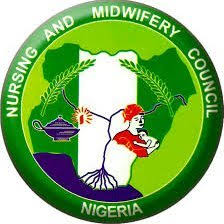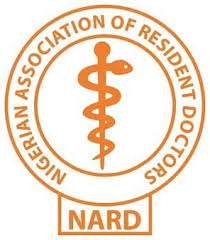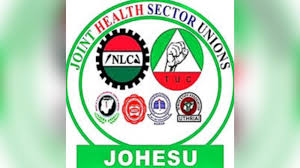The Young Medical Laboratory Scientists Forum (YMLSF) held her 1st National Summit on the theme “The Role of Young Professionals in Achieving the Sustainable Development Goals (SDGs)”.
The Summit was declared open by the Chairman; Prof. Dennis Edo Agbonlahor on August 4, 2017. The keynote address on the theme was delivered by Prof. Teddy Adias of the Federal University Otuoke with an address by The Distinguished Senator, Hon. Joshua Lidani of the Federal Republic of Nigeria.
.jpg) SPECIFIC OBJECTIVES OF THE SUMMIT
SPECIFIC OBJECTIVES OF THE SUMMIT
1. To provide a watering ground for MLS to contribute to Nigeria's attainment of the SDGs before 2030.
2. To provide networking and business collaboration opportunities.
3. To develop a blueprint for entry by young Professionals into the Sustainable Development Goals agenda.
4. To examine primary healthcare delivery options and formulate strategies for tackling observed challenges as well as opportunities for improvements.
OBSERVATIONS AND RECOMMENDATIONS
The Summit deliberated on the theme: “role of young professionals in achieving the Sustainable Development Goals” , sub-themes and other contemporary issues affecting the quality of health care delivery in Nigeria particularly the Medical Laboratory requirements after which the following observations and recommendations were made.
1. Summit observed that the 17 Sustainable Development Goals (SDGs) and 169 targets which replaced the Millennium Development Goals (MDGs) are actionable and timely; as well as crucial for addressing the multifaceted challenges facing Nigeria. Nigeria could not achieve majority of the MDGs; the SDGs however provide a fresh opportunity for Nigerian youths to take responsibility and see their achievement as our primary duty.
2. Summit affirmed that partnerships and collaborations remain the key ingredient for driving sustainable development. An emphasis on the need for sustainable partnerships, team work and collaboration among healthcare professionals was also made.
3. Summit affirmed that professionals have a huge role to play in informing policy directions and formulation processes. Working hand in hand with elected legislative officials to determine the laws and policies passed ensures the needed synergy that translates to sustainable progress and development.
4. Summit deliberated on the burning questions that examine the reasons for the failure of the Nigerian Primary Healthcare (PHC) sector which accounts for about 83% of Healthcare facilities in the Nigerian Healthcare space. These questions were :
i. Is the PHC practice in Nigeria based on scientifically sound methods?
ii. Is it socially acceptable and widely patronized as envisaged?
iii. And If not, why not?
iv. How can we ensure the realization and achievement of the goal of PHC as envisaged by the World Health Organization in Nigeria?
5. Summit affirmed that evidence based Primary Healthcare Access is a major cornerstone of the Health for All Agenda and thus Universal Health Coverage. The foundation of this 21st century Primary Healthcare Delivery must be based on scientifically sound Medical Laboratory Facility and Personnel to encourage the confidence of the community who must necessarily patronise the Primary Healthcare Centres.
6. Participants observed that one major reason why many people skip the primary healthcare facilities and instead throng the more advanced secondary and tertiary facilities, was the clear absence of efficient and appropriately trained laboratory personnel and facilities leading to many trial and error attempts of treatments. Summit concluded that until this is addressed, Nigeria would continue to get it wrong and PHCCs would be little better than abandoned buildings playing host to rodents and reptiles.
7. Summit observed that Development Partners can do better by working with the Medical Laboratory Science Council of Nigeria and partners to ensure that “task shifting” incorporates the different cadres of already trained laboratory personnel rather than bypassing this massive resource pool to bring on board less qualified and poorly trained persons. If this is not a solution in the developed climes, why would it become the prescription for solving Nigeria's healthcare challenges?
8. Summit observed that entrepreneurship; particularly focused entrepreneurship which provides industry mentorship to young professionals in a bid to enable the growth of sustainable healthcare provision providers is urgently needed in the Nigerian healthcare space. Young professionals need connections, skills and experienced guidance to translate innovative ideas to sustainable development goals drivers.
9. Participants reiterated the need for diversification and embracing foreign innovative technologies and domesticating such for the benefit of the Nigerian populace.
10. Summit advocated for the need to harness the potentials of young graduates in Nigeria while also channelling this towards sustainable healthcare delivery in Nigeria; via a Private Sector Driven entrepreneurship training and mentorship of young graduates in Nigeria.
11. Summit noted that young people are the greatest assets of any laboratory, organization, community and indeed the entire country. Ensuring the maximization and guidance of this huge potential base is a primary requirement for achieving the Sustainable Development Goals.
12. Summit reiterated that “In this 21st century, Nigerians whether they are rural or urban dwellers are entitled to have medical treatment guided by empirical evidence of rudimentary laboratory data. The days of “if you have fever treat for malaria” should be abolished in our healthcare practice. It is a waste of resources of both the patient and the attending practitioners.”
13. Summit recommended that the money that would be budgeted for the building of new primary healthcare centres should rather be used to pay for Community Health Insurance benefits for the beneficiary communities. This would encourage private investors to go and set up businesses in the remote villages, given the assurance of payment for whatever services they render to the community. This would ensure Universal Health Coverage faster since there would be a guarantee of patronage, reimbursements of costs and thus appropriate, available and affordable services without the hassles of HMOs would be achieved.
14. Participants affirmed that the provision of efficient, affordable and sustainable laboratory services will improve healthcare delivery and lead to the reduction of the menace of communicable and non-communicable diseases in Nigeria. Medical laboratories are not only vital, but they are also indispensable in the fight against diseases and protection of human health and life.
15. Summit noted that diseases do not always show overt clinical signs. Hence, the need for routine health and laboratory checks covered by health Insurance (Universal Health Coverage) can not be over emphasised. This will reduce the menace of sudden and silent killer diseases; infectious and debilitating diseases affecting both the rich and poor. In children, anaemia and malnutrition will be prevented and geriatric health challenges will be more appropriately managed in the aged. Summit noted that out of pocket payments is the major reason for the paucity of routine health and laboratory checks by majority of the populace. Hence, acute and chronic disease conditions fester and become worse. Keying in to Universal Health Coverage ensures prevention and early detection/ management for all Nigerians and will help ensure that the first leg of the battle against acute and chronic diseases is won. Thus, Sustainable Development Goal 3 is achieved.
16. Summit noted that the WHO Regional Committee for Africa Resolution AFR/RC/R7 of 1993 which urged member states to “develop well-staffed and properly equipped laboratory services for preventing and combating epidemics of communicable diseases through improved surveillance at the district level is still pending for implementation in Nigeria. This will prevent Nigeria's attainment of the Sustainable Development Goals which emphasizes inclusiveness for all tiers of the community. More so, Universal Health Coverage which is a necessity can only be achieved when there is a vibrant and responsive medical laboratory system.
17. Summit recommended the development of an entrepreneurship culture which would complement the already existing entrepreneurship training and mentor-ship packages. Respect of Professional hierarchy and guidance from the senior colleagues to the junior colleagues must necessarily be preserved.
18. Summit recommended a census of all private laboratories in Nigeria in addition to a strengthening of the regulatory activities of the MLSCN in order to ensure the improvement of quality and eradication of quackery in the Nigerian Medical Laboratory space. All stakeholders were enjoined to support the MLSCN in the recent push for laboratory accreditation,inspection and compliance monitoring.
19. Summit observed that there is a critical need for government at all levels to show political will and implement the many laudable policies and programmes which are crucial to the attainment of the SDGs. Moving from paper to practice is a prerequisite for actualising the opportunities and potentials inherent in our current National challenges.
20. Summit commended the efforts of all stakeholders who rallied to ensure that the recent Meningitis outbreak in Zamfara was eventually contained despite the initial mishaps.
CONCLUSION/APPRECIATION
The 1st Summit of the Young Medical Laboratory Scientists Forum is a laudable achievement from the young Nigerian Medical Laboratory Scientists. It is a worthy testimony of resilience , a can do attitude and proactive consideration of community challenges with a problem solving mindset. .
We appreciate the AMLSN FCT Branch for providing us with all needed support for this epoch making event.
We equally appreciate the elders and senior colleagues of our parent Association; AMLSN for completely supporting us towards the successful hosting of this Summit.
To God be the Glory!
Signed:




